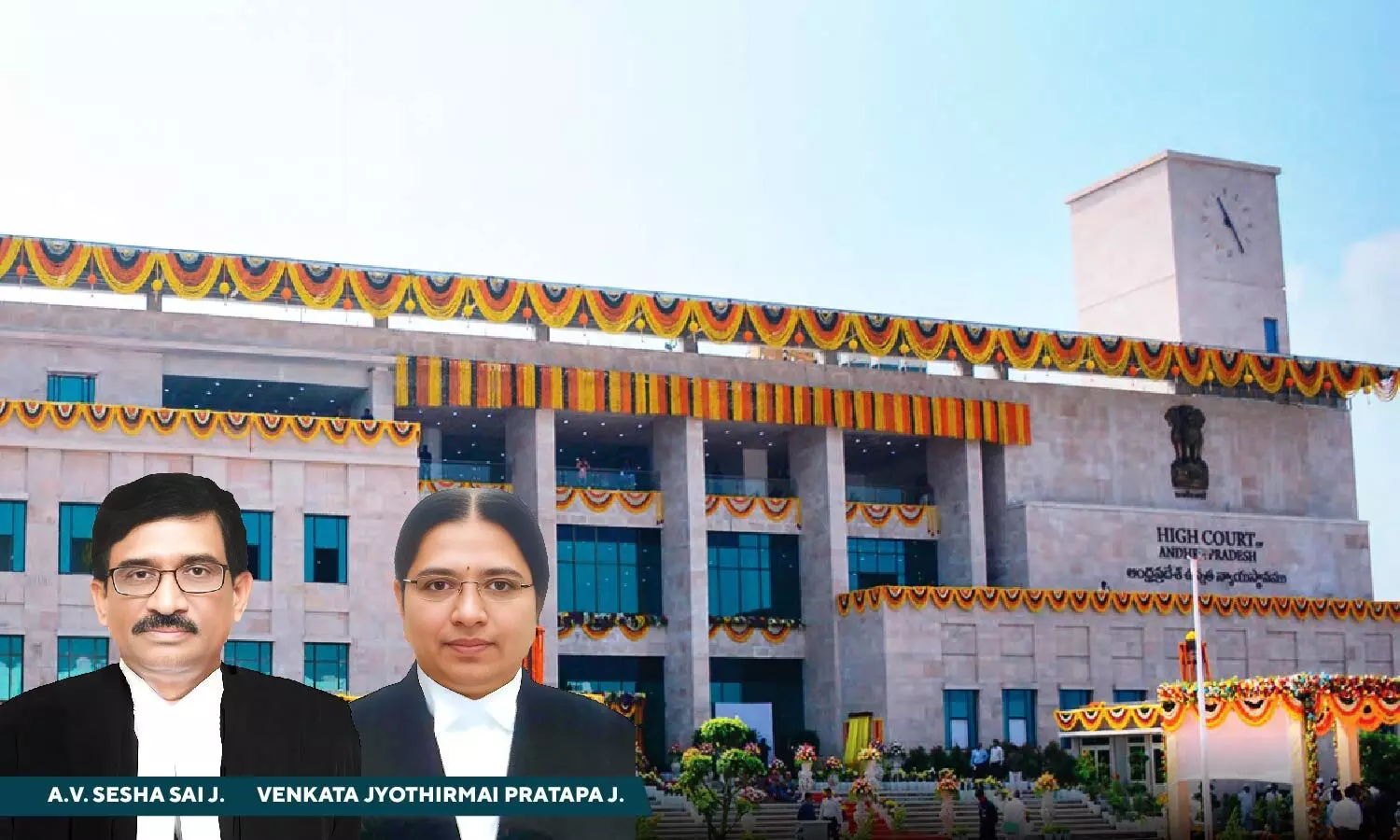
Disciplinary Authority’s Action Highly Objectionable: Andhra Pradesh HC While Setting Aside Constable’s Dismissal Order
 |
|The Andhra Pradesh High Court, Amravati Bench has set aside an impugned order passed by the Administrative Tribunal and the order of dismissal from service in the consequential disciplinary proceedings while directing to reinstate the Police Constable into services with all benefits. The constable in the present matter was acquitted by the Trial Court of all the charges in connection with the death of his wife. However, the disciplinary authority pursuant to an enquiry despite the petitioner’s acquittal, dismissed the petitioner from service.
Therefore, while holding that the orders passed by the disciplinary authority suffer from an inherent lack of jurisdiction a bench of Justice A.V. Sesha Sai and Justice Venkata Jyothirmai Pratapa observed, “The impugned action of authorities in holding the enquiry into the criminal offences alleged against the petitioner, in the teeth of judgment of Sessions Court, would tantamount to interference with the judicial process, which cannot be permitted. The exercise undertaken by the disciplinary authorities is highly reprehensible, objectionable and the same is liable to be deprecated. The involvement in crime may be one of the factum while considering the candidature at the time of initiation of disciplinary proceedings, but it cannot be a ground for inflicting punishment”.
Advocate K.R. Srinivas appeared for the petitioner and Government Pleader V.S. Kishore Kumar, appeared for the respondents.
In the pertinent matter, the petitioner was a constable who had a criminal case registered against him in connection with the death of his wife. However, after the trial court acquitted him of the charges, a regular enquiry officer was appointed under the provisions of the Andhra Pradesh Civil Services (Classification, Control and Appeal Rules, 1991), pursuant to which he was guilty of certain charges.
The impugned order of the disciplinary authority read, “It is clear from the evidence of the above witnesses, that the charged officer has developed illicit intimacy with Sandhya Rani and misbehaved with his wife, man handled and harassed her and as the charged officer was not taking care of the family, she used to iron the clothes of the neighbours and earn money. Later she became a hurdle to continue his illegal contacts. As far as acquittal by the court is concerned, it was done U/s.302 and 201 IPC, which deals with murder and screening of evidence. No charges were framed regarding harassment U/s.498 A IPC and illegal intimacy with other woman in the court of law. Court has not deliberated about these charges which were framed in departmental enquiry separately along with murder charge”.
The present petition challenged an order dated July 5, 2012, passed by the Andhra Pradesh Administrative Tribunal dismissing an original application instituted by the petitioner under Section 19 of the Administrative Tribunals Act, 1985. In the said Original Application, the petitioner challenged the order of dismissal dated October 4, 2008, passed by the Superintendent of Police, Guntur, Guntur District, as confirmed in appeal by the Inspector General of Police, Guntur.
Now the question before the Court were:
(1) Whether the order passed by the Tribunal, in the facts and circumstances of the case, is sustainable and tenable?
(2) Whether the questioned order warrants any interference of this Court under Article 226 of Constitution of India?
After considering the facts and circumstances in the matter, the bench pertinently noted that after holding a trial, the Court of the II Additional Sessions Judge, Guntur, acquitted the writ petitioner cleanly but now by extending the benefit of doubt. Therefore, the High Cout while answering in affirmative was of the opinion that the action of authorities in holding the enquiry into the criminal offences was an interference with the judicial process.
“The exercise undertaken by the disciplinary authorities is highly reprehensible, objectionable and the same is liable to be deprecated. The involvement in crime may be one of the factum while considering the candidature at the time of initiation of disciplinary proceedings, but it cannot be a ground for inflicting punishment. It is also pertinent to note that Article No.2 of the enquiry is an integral part of Article No.1. Perusal of the order passed by the Tribunal shows that the Tribunal did not consider the above aspects while arriving at the conclusions. The orders passed by the disciplinary authority, inflicting the punishment of dismissal in the teeth of the Judgment rendered by the Sessions Court suffer from inherent lack of jurisdiction”, the bench noted in the order.
Cause Title: Ch. China Galaiah v. The Inspector General of Police, Guntur Range, Guntur and another